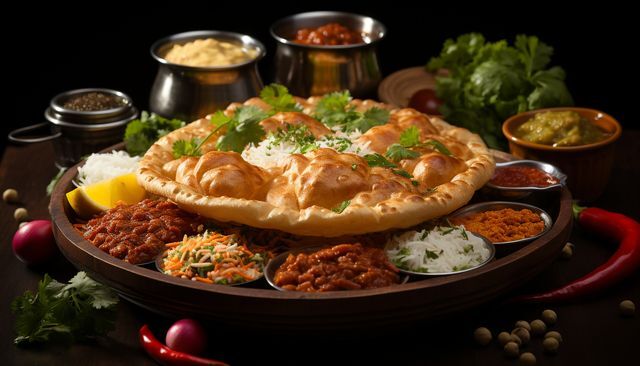

The future of Indian restaurants on a global scale is poised for continued growth and innovation, driven by several key trends and developments:
Culinary Diversity: The world of Indian cuisine is a treasure trove of unique flavours, ingredients, and cooking techniques, each region offering its own distinct culinary experience. As global palates evolve and become more adventurous, the prospect of exploring the vast and diverse culinary landscape of India is nothing short of thrilling. This trend is set to spark a greater appreciation for regional Indian cuisines, going beyond the familiar dishes like curry and tandoori.
Health and Wellness Focus: Indian cuisine is a beacon of health in the culinary world. It aligns perfectly with the growing demand for healthier dining options. As consumers become more health-conscious, Indian restaurants are expected to offer a wider array of plant-based and nutritious menu items, catering to dietary preferences such as vegetarian, vegan, and gluten-free.
Innovation in Fusion Cuisine: Indian chefs are not just masters of their traditional cuisine but also pioneers of fusion cuisine. They constantly push the boundaries by infusing global flavours and culinary techniques into their dishes, creating a world of exciting new dining experiences that cater to a diverse range of tastes.
Fine Dining Experiences: Indian cuisine is increasingly elevated to fine dining, with upscale restaurants offering sophisticated interpretations of classic dishes. These establishments focus on culinary artistry, impeccable service, and memorable dining experiences that rival those of other international cuisines.
Street Food Revolution: Street food has long been integral to Indian culinary culture, with restaurants and food trucks serving authentic chaat, dosas, kebabs, and other street snacks. This trend will grow as consumers seek casual, affordable, flavour-packed dining experiences.
Technology Integration: Indian restaurants embrace technology to enhance the customer experience and streamline operations. From online ordering and delivery platforms to digital menus and reservation systems, technology is reshaping how Indian cuisine is consumed and enjoyed.
Sustainable Practices: With increasing awareness of environmental issues, Indian restaurants are adopting sustainable practices such as sourcing local and organic ingredients, minimizing food waste, and reducing carbon footprints.
Cultural Exchange and Education: Indian restaurants serve as cultural ambassadors, providing opportunities for people from diverse backgrounds to learn about Indian culture, traditions, and culinary techniques. Through food festivals, cooking classes, and cultural events, Indian restaurants foster cultural exchange and appreciation, further enriching the global culinary landscape.
Indian restaurants will be increasingly prominent in shaping the culinary scene worldwide.